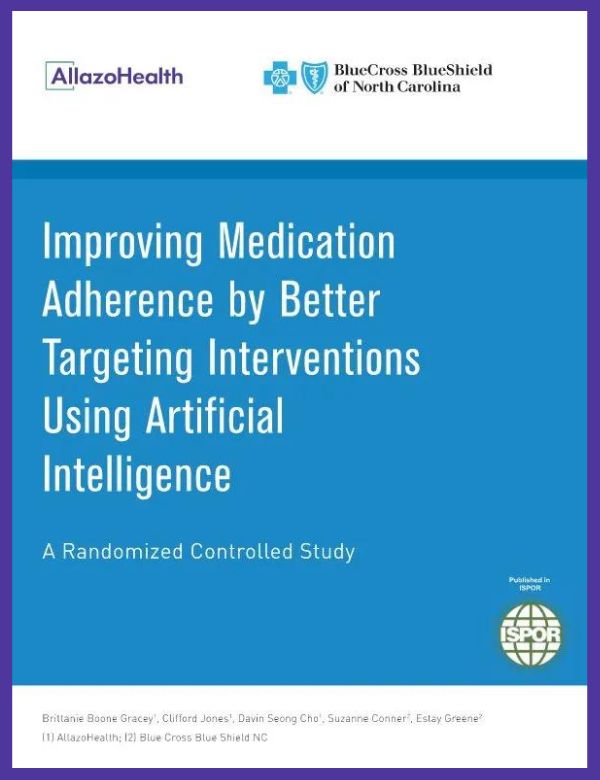
Artificial intelligence (AI) can play a crucial role in cultivating individual patient adherence and addressing gaps in therapy. This case study demonstrates how Blue Cross Blue Shield of North Carolina used AI to revolutionize medication adherence for improved patient outcomes.
The Challenge
Improving Patient Engagement for Better Medication Adherence
Each year, healthcare organizations invest substantial amounts to combat one of the most pervasive issues in healthcare today—medication nonadherence. As these stakeholders struggle with cost constraints and the demands to demonstrate value-based care, medication adherence represents one of the most manageable yet unresolved opportunities.
The Solution
Predictive Analytics and AI Can Target and Personalize Interventions
Blue Cross Blue Shield of North Carolina (BCBSNC) engaged AllazoHealth to improve the medication adherence rates for its Medicare Advantage Part D patient population. The main objective was to improve the adherence rates across three critical classes of medications: renin angiotensin system antagonists (RASAs), oral anti-diabetics (OADs), and statins.
The Results
Greater Uplift in Adherence and More Efficiency
Using AllazoHealth’s AI solution resulted in patients staying on their medication for 7.8% longer, which is 5.5 times more days on therapy. Additionally, these results are even more impressive considering a larger percentage of patients without AI-enablement received outreach (15.2%) compared to the group that had AI-support (11.7%).
Access the case study to gain a comprehensive understanding of how AI-driven strategies reshape medication adherence and contribute to improved health outcomes. Fill out the form for immediate access.